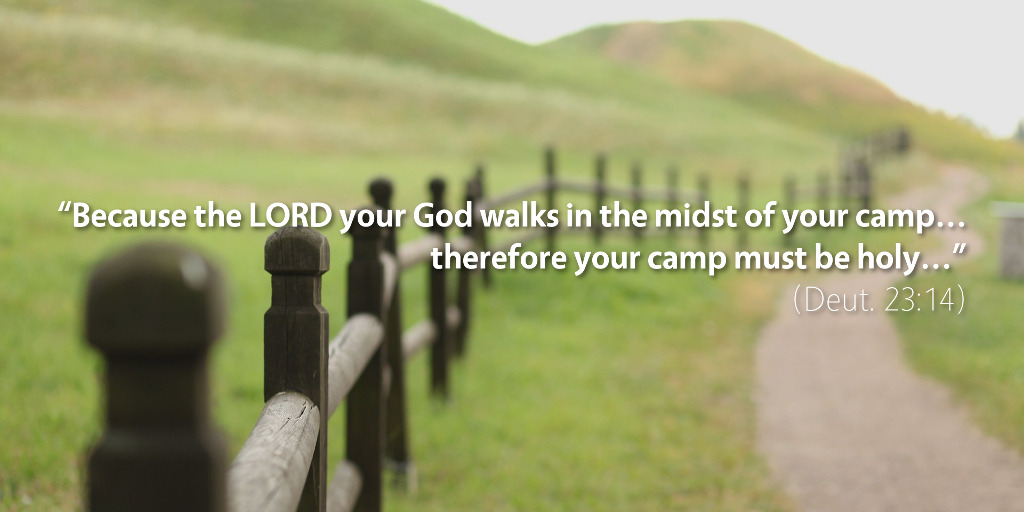Bible Readings for June 18th
Deuteronomy 23 | Psalms 112–113 | Isaiah 50 | Revelation 20
Several of the prohibitions in Deuteronomy 23 almost make it seem as though Yahweh is squeamish about the human body. For example, we read that anyone with his testicles crushed or male organ cut off cannot enter into the assembly to worship in the tabernacle of Yahweh (Deut. 23:1). Then, we read that any man with a nocturnal emission must stay outside the camp until evening comes and he bathes with water (Deut. 23:10–11) and that the Israelites were required to bury their excrement outside the camp (Deut. 23:12–14).
We read the reason for this in Deuteronomy 23:14: “Because the LORD your God walks in the midst of your camp, to deliver you and to give up your enemies before you, therefore your camp must be holy, so that he may not see anything indecent among you and turn away from you.” Yahweh’s walking in the midst of the camp literally means, “walks back and forth.”
The first place we saw this specific form of the verb was back in Genesis 3:8: “And they heard the sound of the LORD God walking in the garden in the cool of the day, and the man and his wife hid themselves from the presence of the LORD God among the trees of the garden.” Not since Adam and Eve sinned had any humans encountered Yahweh walking back and forth, with the fullness of his free, unrestrained presence in their midst. Since bodily emissions and even normal human excrement would pollute the camp, Yahweh could not allow it to dwell in Israel’s camp as he recreated the Garden of Eden to dwell in the midst of his people again. It seems that sin has even tainted the biological functions of human beings, so that what had been clean for Adam and Eve now defiles Yahweh’s presence. Yahweh isn’t squeamish; rather, he is holy.
Inside the tabernacle, the requirements were even more strict. There, no kind of deformity was allowed at all, so that even if people whose reproductive organs were damaged could dwell inside the camp, they were not allowed to enter into the tabernacle (Deut. 23:1). Furthermore, some foreigners were not allowed to worship at the tabernacle with the assembly of Israel at all (Deut. 23:2–8).
But these provisions were always temporary in nature. In Isaiah 56:1–8, we find Yahweh announcing specifically that he would make foreigners and eunuchs (males with damaged/amputated reproductive organs) “joyful in my house of prayer,” and that “their burnt offerings and their sacrifices will be accepted on my altar” (Isa. 56:7). It isn’t that God came to tolerate uncleanness—nothing unclean will ever enter into the New Jerusalem (Rev. 21:27)—but something much better: God sent his Son into the world to cleanse defiled, broken people with his own blood and righteousness.
Podcast: Play in new window | Download (4.9MB) | Embed
Subscribe: Apple Podcasts | RSS | More

Scripture quotations are from The Holy Bible, English Standard Version copyright © 2001 by Crossway Bibles, a division of Good News Publishers. Used by permission. All rights reserved.


